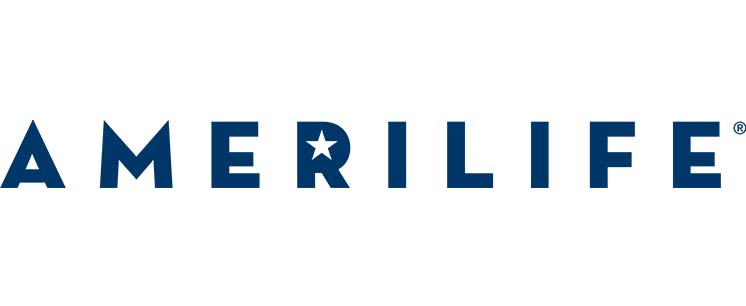 News Release
News ReleaseTiny Homes and Airbnb: Why It Pay$ to Be Unique: An Up-Close Look at One-of-A-Kind Stays on Airbnb
YourUpdateTV
Hosts around the world have been sharing their unique spaces on Airbnb for well over a decade, and guests have fallen for their one-of-a-kind stays, from domes and windmills to lighthouses and trains. Recently, Ellis Nanney, host of a tiny home in Boise, Idaho, conducted a satellite media tour to talk about his experience being the host of a tiny house and the financial benefits of listing a unique space on Airbnb. A video accompanying this announcement is available at: https://youtu.be/7lxB2RasYxU In the past two years alone, from 2019 to 2021, nights booked at unique properties have increased globally by nearly 50 percent. With more guests booking unique stays, Hosts are also earning real income, with unique listings earning nearly $1 billion just in 2021. In fact, globally, earnings by night and by traveler were higher for unique than for non-unique listings in 2021. Through Airbnb Categories, launched this past May, it is also easier for guests to search unique listing types, from Treehouses to Caves, Campers to Barns, and connect with unique homes and Hosts they may have otherwise overlooked. A brand new OMG! Category, which has been clicked on over 2.5 million times since launch, also showcases the zaniest of all unique homes on the platform. The OMG! Category even inspired a first-of-its-size $10,000,000 OMG! Fund, which will award 100 of the craziest listing ideas with $100,000 each, turning over-the-top architectural musings into real-life homes, bookable on Airbnb. Tiny but Mighty: Tiny Homes Most Booked Listing Types in the World While treehouses and barns abound on Airbnb — and are among the top 10 most booked unique listing types in the world, it’s tiny homes that take top spot, proving that a little creativity can go a long way. In 2021, more than 2.5 million nights were booked in tiny homes. Tiny homes come in all shapes, but relatively the same small size. And their Hosts know that there’s nothing tiny about their income: Tiny homes around the world earned their Hosts a total of more than $195 million in 2021 – the top grossing unique space type. Take it from tiny home Host Ellis, who purchased a property in the heart of Idaho and spent the next five years building his own tiny house. He finally listed it on Airbnb in 2019, and the property quickly paid for itself— along with even earning Ellis enough money to put toward his travels and investments too. Treetops at the Top: Most Wishlisted Unique Homes in the World When they are not booking, guests are daydreaming about unique getaways, adding countless inspired stays to their wishlists. In 2021, unique listings were added to almost 20 million wishlists worldwide. Tucked away in a serene and leafy neighborhood in East Point, Georgia, USA sits the most wishlisted unique listing in the world, a beautifully appointed treehouse, with all the rustic trimmings but plenty of modern considerations, from a hot tub to indoor heated spaces, for the most cozy stay. It’s no surprise that Lawrene – a successful actress and sparetime weaver (and lighthouse keeper!) in Florence, Canada – has found accidental success from this treehouse craze. After enjoying her own Airbnb stay in Brooklyn, Lawrene wondered what it would be like to try hosting herself, sharing the off-the-grid space she built for herself ten years earlier, right in her backyard. While she convinced her husband to list the space by assuring him hardly anyone would be interested in staying in their rustic escape, to her husband’s surprise, they have welcomed a steady stream of outdoor enthusiasts and no-trace campers since 2012, who enjoy the peaceful escape – and the homemade waffles Lawrene prepares for breakfast. To find out more about the hosting or booking tiny homes and other unique spaces go to Airbnb.com About Ellis Nanney Ellis Nanney was born and raised in the Pacific Northwest where his love for adventure and freedom was developed from an early age. After graduating from Boise State University, he decided to ditch the career path and live his life in a more entrepreneurial way. Coming hot off of a study abroad semester in Sevilla, Spain, the travel bug and an insatiable desire to explore the world took the reins and set him on an unconventional path for the next decade. His work life was filled with either seasonal or temporary jobs that had him marketing Idaho Potatoes as a self-proclaimed ‘Spud Stud’, promoting the Mexican Caribbean as the ‘Cancun Experience Officer’, hosting a travel show called the Fireball Run, and managing the world’s greatest travel experience, the TukTuk Tournament in Sri Lanka. In between these ‘jobs’ he filled the gaps with international trips that have taken him to nearly 40 countries across 6 continents. Along this journey he was always looking for a way to make this lifestyle sustainable while also providing security for his future. This led him to buy a piece of property and build a tiny house that he could both use as a home base and be a source of passive income to support his adventures. Thanks to the help of Airbnb’s platform and many friends and family members along the way, his unique property has had nothing but success. He’s been an Airbnb Superhost since he began in 2019 and now has much more freedom to choose among life’s opportunities. About Airbnb Airbnb was born in 2007 when two Hosts welcomed three guests to their San Francisco home and has since grown to 4 million Hosts who have welcomed more than 1 billion guest arrivals in almost every country across the globe. Every day, Hosts offer one-of-a-kind stays and unique Experiences that make it possible for guests to experience the world in a more authentic, connected way. Contact Details YourUpdateTV +1 212-736-2727 yourupdatetv@gmail.com
August 29, 2022 02:30 PM Eastern Daylight Time
Video






